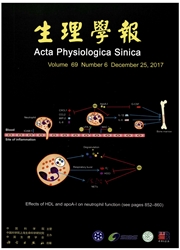

 中文摘要:
中文摘要:
造血干细胞(hematopoietic stem cell, HSC)是发现最早、研究较多、在临床中广泛应用并一直起着范式作用的一类重要的成体组织干细胞。HSC研究被认为是整个干细胞生物学和再生医学的主要奠基学科之一。HSC具有自我更新、多向分化、静息维持、凋亡控制和运动迁移这五大特性。这些特性既相互影响,又互相制约,共同组建成HSC功能的生理调控网络。本文将围绕构成HSC生物学的这五个主要方面在生理条件下的相关研究机制进行综述,旨在通过对HSC功能调控的认识为其它类型的成体干细胞研究及应用提供引领和示范作用,从而为整个干细胞与再生医学的发展奠定坚实的基础。
 英文摘要:
英文摘要:
As a classical type of tissue stem cells, hematopoietic stem cell (HSC) is the earliest discovered and has been widely applied in the clinic as a great successful example for stem cell therapy. Thus, HSC research represents a leading field in stem cell biology and regenerative medicine. Self-renewal, differentiation, quiescence, apoptosis and trafficking constitute major characteristics of functional HSCs. These characteristics also signify different dynamic states of HSC through physiological interactions with the microenvironment cues in vivo. This review covers our current knowledge on the physiological regulation of HSC and its underlying molecular mechanisms. It is our hope that this review will not only help our colleagues to understand how HSC is physiologically regulated but also serve as a good reference for the studies on stem cell and regenerative medicine in general.
 同期刊论文项目
同期刊论文项目
 同项目期刊论文
同项目期刊论文
 期刊信息
期刊信息
